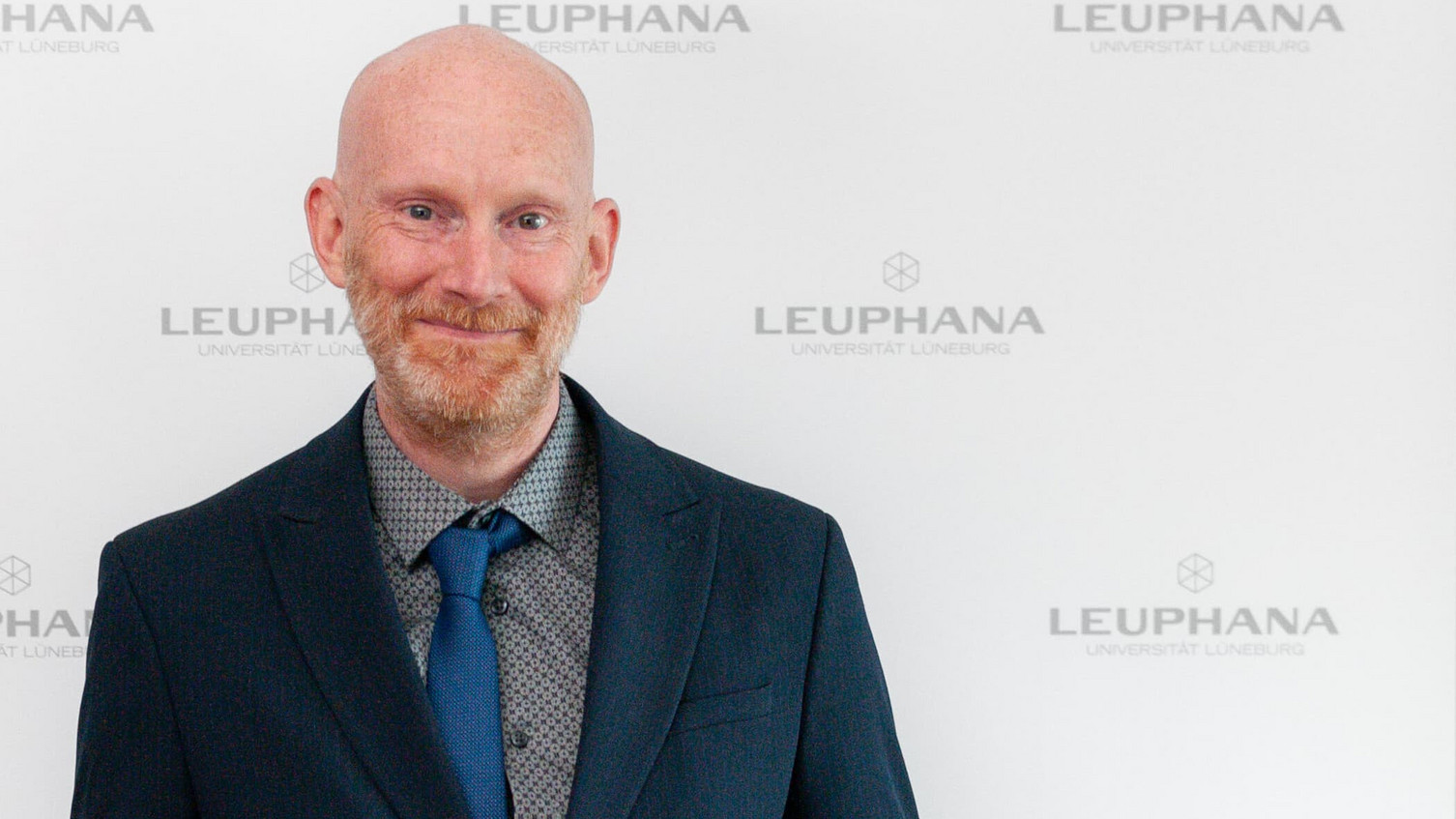New at Leuphana: Prof. Dr. Dave Abson - Happiness instead of waste
2023-12-19 The Professor of Sustainable Resource Use is one of the most cited researchers in the world in his field. He deals with planetary boundaries, sustainable economic success and the question of what we really need to live well. At one time he also embarked on a personal quest for meaning.
Dave Abson was standing at a long, finely polished table made of precious wood when he realised that he had to change his life. At the time, the sustainability economist was working in the car industry as a design engineer. On that day, he presented his new product: a digital tyre pressure gauge. But hardly any of the managers were interested in the technical quality that gave him so much pleasure, Dave Abson reports: "They only cared how much money they could make. He wanted to create something useful, not something purely profit-making.
The Briton quit his job and travelled for six years. In India, he met an ascetic wandering monk, whose only possessions were the clothes he wore and a walking stick. The sadhu told Dave Abson, "The most important thing in life is to be conscious about how you step on the earth."
The man's words changed Dave Abson: "I could see how lightly they stepped on the earth, but I wanted to better understand my own impact (leading a typical western lifestyle) on the environment: How heavily do I step on the earth?" Dave Abson went back to the UK and did a Masters in Sustainable Development at the University of Leeds. In his interdisciplinary doctoral thesis, the researcher looked at the positive influence of heterogeneous agriculture on birds: a heterogeneous system not only offered animals more ecological niches; it was also more resistant to disturbances than a monoculture. During his PhD, Dave Abson was also part of the UK National Ecosystem Assessment, a survey of the state of nature in the UK.
In his current research project, Mainstreaming social-ecological sufficiency (MaSES), Dave Abson is looking at global production and consumption patterns. "They are fundamentally unsustainable and thus threaten important processes on our planet that are essential for maintaining ecological functioning and the long-term survival of humanity," says Dave Abson. As part of MaSES, he calculates how much a western household may consume to still be within planetary boundaries.
The researcher argues for a paradigm shift to bring about transformative change. "Success in our thinking is linked to economic growth. We consume two to three times more resources than we did in the 1970s. But have we become happier as a result? No," says Dave Abson. In the second step of the study, he therefore wants to know how the gap between social need and sustainable consumption can be closed: "What do we need for a satisfied life instead of more and more consumption? Is it more culture or do we need better interpersonal relationships?" The European Research Council (ERC) is funding the scientific study with around two million euros until 2028.
Dave Abson works in a strongly interdisciplinary way: "To solve a problem, it is crucial to look at it from different sides." For example, as part of the large-scale project "Leverage Points" at Leuphana, he looked at scientists' models of thinking: "The way you describe your system shapes the kind of opportunities to intervene in that system," Abson explains. For example, the concept of ecosystem services was initially intended to highlight the interdependence of human well-being and biodiversity, but quickly became a tool for the economic valuation of nature. If we think of our relationship with nature in terms of euros and cents what kind of solutions to the biodiversity crisis does that thinking generate.
Most recently, Dave Abson collaborated with ecologists on the research project "Towards a sustainable bioeconomy: A Scenario analysis for the Jimma Coffee Landscape in Ethiopia". The overall aim of the project was to determine the ecological and socio-economic impacts of ecosystem service flows in an increasingly interconnected bioeconomy in the global South. The case study area, the Jimma Zone in south-western Ethiopia, is a biodiversity hotspot where local people are highly dependent on the landscape to provide important ecosystem services.
David Abson has been working at Leuphana in research and teaching on sustainability since 2012. On several occasions, he has been among the most cited researchers worldwide in his field of research, according to the "Highly Cited Researchers" report by Clarivate Analytics.

